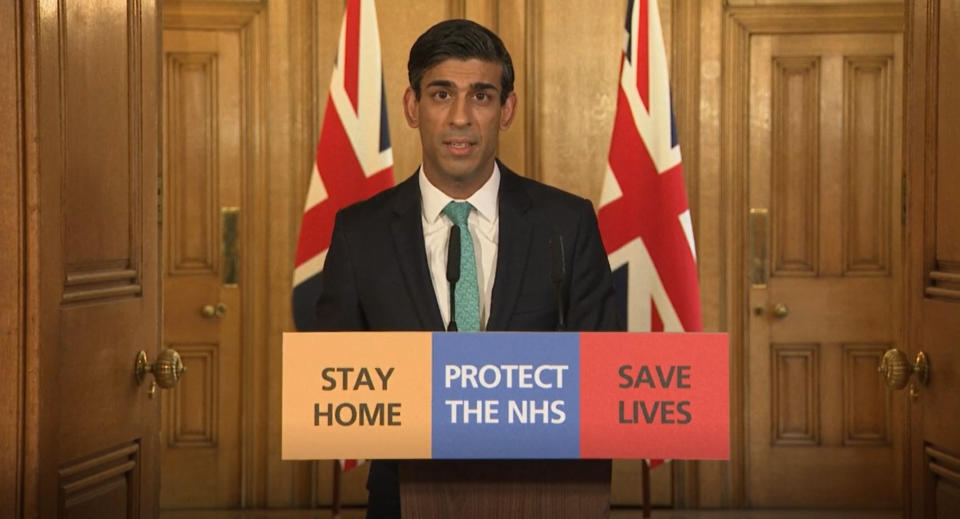Coronavirus: How does the self-employed aid package work?

With the general public under quarantine, businesses are struggling and many employees face an uncertain future.
Those being kept on by employers during the coronavirus will have 80% of their wages subsidised by the government - but ministers were criticised for not offering support to the self-employed.
There are around five million people in self-employment in the UK and the number has risen dramatically since the 2008 financial crisis. After calls for better support for self-employed people during the coronavirus pandemic, new emergency financial measures have now been announced for people working for themselves.
Here’s the lowdown on the scheme - including what it is, who is eligible and how to make a claim.
What is the Self-employment Income Support Scheme?
The government will pay self-employed people a taxable grant based on their previous monthly earnings over the past three years. It will be worth up to 80% of earnings and capped at £2,500 a month. According to HMRC, you must have annual “profits” - self-employed earnings - of less than £50,000 a year. The scheme will last for three months but it may be extended.
HMRC will take an average of your last three years’ profits as a self-employed person, but if you have been self-employed for one or two years, it will rely on those tax returns. If you have not filed a tax return as a self-employed person, you are not eligible for money using the scheme. Instead, you can apply for universal credit.
According to Chancellor Rishi Sunak, the scheme will cover 95% of the self-employed who make most of their money from self-employment.
Who is eligible for government support?
To be eligible, you must earn more than half your income from self-employment. You must also have submitted a tax return for 2018/19 and have a trading profit of less than £50,000 for 2018/19, or an average trading profit of less than £50,000 for the tax year 2016/17, 2017/18 and 2018/19. This scheme is open to sole traders and members of partnerships.
Anyone who missed the deadline in January has four weeks from the announcement (March 26th) to submit their tax return.
Those who pay themselves a salary and dividends through their own company are not covered by the scheme but will be covered for their salary by the Coronavirus Job Retention Scheme if they are operating PAYE schemes.
When will the money be distributed?
Grants will be paid in a single lump sum instalment covering all 3 months, and will start to be paid at the beginning of June. However, the scheme may be up and running before June.
How do you apply?
You don’t apply right now. HMRC will use existing information to check potential eligibility and invite applications once the scheme is up and running.
What happens after you have applied?
Once HMRC has received your claim and you are eligible for the grant, you will be contacted and told how much you will get and the payment details. If you claim tax credits, you’ll need to include the grant in your claim as income.
Watch out for fraud
It’s likely that fraudsters will take advantage of the scheme. It’s important to note that self-employed people can only access the scheme through the Gov.uk website.
If someone texts, calls or emails claiming to be from HMRC, saying that you can claim financial help or are owed a tax refund, and asks you to click on a link or to give information such as your name, credit card or bank details – it is a scam.

 Yahoo Finance
Yahoo Finance 
